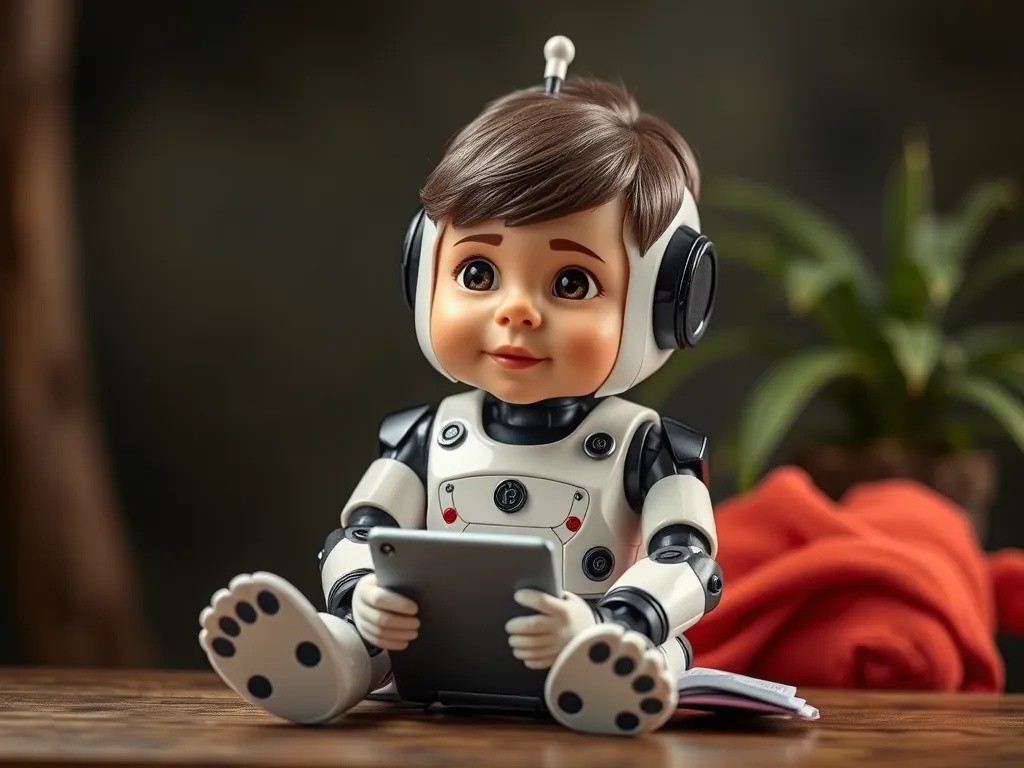In recent years, there has been a significant advancement in the field of Artificial Intelligence (AI) and Augmented Reality (AR). These technologies have become increasingly popular and have the potential to enhance virtual experiences in various fields such as gaming, education, healthcare, and...
New Bot Answers Child's Questions Better Than Parents

A groundbreaking AI assistant designed specifically for children is revolutionizing the way young minds explore the world around them. Recent studies and user feedback suggest that this innovative chatbot may actually provide better answers to children's questions than their own parents, sparking both excitement and debate among families worldwide.
The Challenge of Curious Young Minds
Every parent knows the scenario: a child asks "Why is the sky blue?" or "How do birds fly?" and suddenly you're scrambling for an answer that's both accurate and age-appropriate. Children ask an estimated 73 questions per day, according to research, often catching parents off-guard during busy moments or touching on topics outside their expertise.
Common Parental Struggles
Parents face several challenges when answering their children's questions:
- Limited knowledge in specialized subjects like astronomy, biology, or physics
- Difficulty explaining complex concepts in child-friendly language
- Time constraints during busy daily routines
- Inconsistent patience levels, especially after the 20th question of the day
- Uncertainty about age-appropriate depth of explanation
How AI Assistants Excel at Child Education
The new AI bot demonstrates several advantages over traditional parental responses. Unlike human parents, the bot maintains unlimited patience, never showing frustration or dismissing questions as unimportant. It draws from vast databases of information, ensuring accuracy across diverse subjects from dinosaurs to space exploration.
Key Advantages of AI-Powered Responses
The bot's superior performance stems from several technological advantages:
- Consistent accuracy: Access to verified information across all subjects
- Age-appropriate explanations: Automatically adjusts complexity based on the child's age and understanding level
- Infinite patience: Never becomes tired or irritated by repetitive questions
- Interactive learning: Engages children with follow-up questions and related topics
- 24/7 availability: Ready to answer questions at any time of day

Real-World Impact on Families
Early adopters report remarkable changes in their children's learning patterns. Sarah Johnson, a mother of two from California, notes that her 7-year-old daughter now spends hours exploring topics that previously received brief, incomplete answers. "She's learning about photosynthesis, ocean currents, and ancient civilizations – things I couldn't explain properly before," Johnson explains.
Educational Benefits
Children using the AI assistant demonstrate improved critical thinking skills and increased curiosity about the world. The bot encourages follow-up questions, helping children develop deeper understanding rather than accepting surface-level answers.
Addressing Parental Concerns
While the technology offers clear benefits, some parents worry about being replaced in their children's learning journey. Child development experts emphasize that AI assistants should supplement, not replace, parent-child interactions.
Finding the Right Balance
The most successful implementations involve parents working alongside the AI assistant:
- Using the bot to research topics before family discussions
- Encouraging children to share what they've learned with parents
- Setting appropriate boundaries for AI interaction time
- Maintaining emotional connections that technology cannot provide
The Future of Child Education
As AI technology continues advancing, these educational assistants will likely become even more sophisticated. Future versions may incorporate visual learning aids, personalized learning paths, and integration with school curricula.
The emergence of AI assistants that excel at answering children's questions represents a significant shift in how families approach learning. While these tools offer remarkable advantages in terms of accuracy, patience, and availability, they work best when combined with loving parental guidance and emotional support. The future of childhood education lies not in replacing parents, but in empowering them with better tools to nurture their children's natural curiosity and love of learning.



